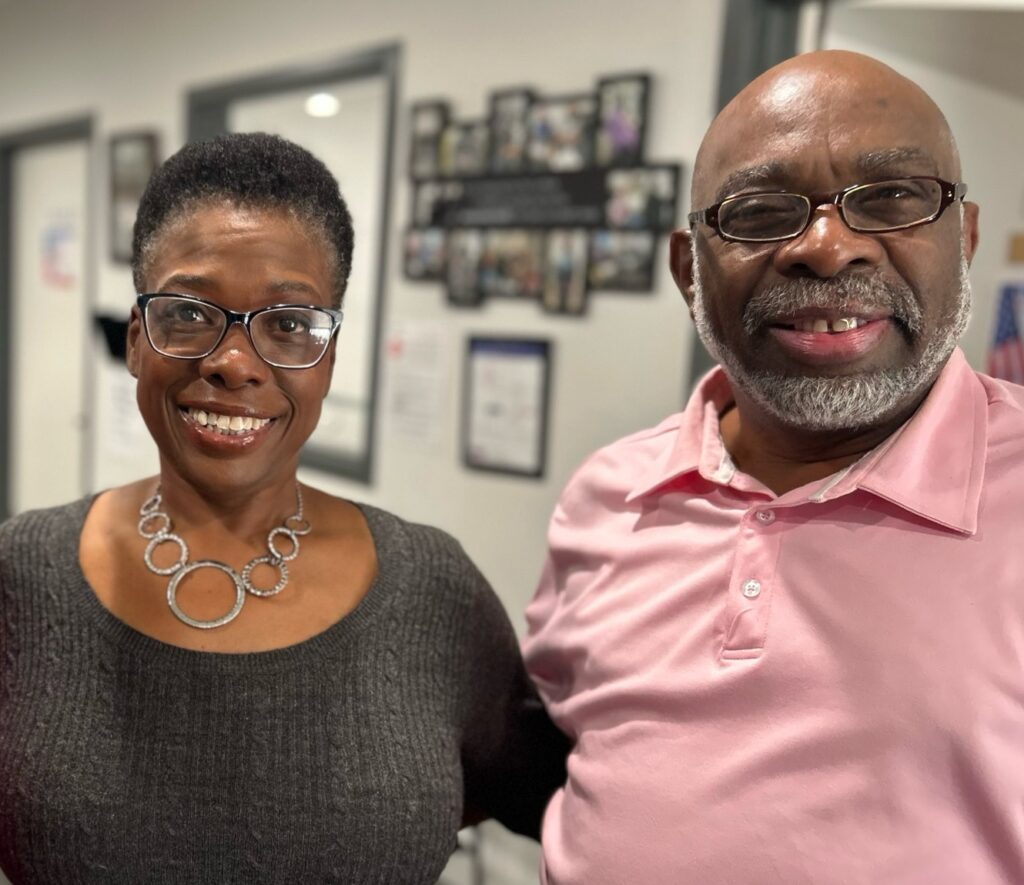
Forth Worth, TX (VOA Texas) – When Brenda Tolliver returned home from Saudi Arabia after serving in the Army during Desert Storm, she carried more than just memories of her deployment. She carried an invisible wound—one that would shape her journey for decades: post-traumatic stress disorder (PTSD).
Lingering Sirens
Brenda first noticed the signs shortly after leaving the military in 1992. She had just given birth to her son and was driving through her neighborhood in Memphis, Tennessee when a siren pierced the air—eerily similar to the ones that signaled scud missile attacks during her time in the Middle East.
“I parked the car in the middle of the street,” she recalled. “I started searching my baby’s diaper bag for a gas mask. I thought we were under chemical attack.”
That moment marked the beginning of a long battle with PTSD, one she didn’t immediately recognize or feel safe acknowledging. “I was afraid to get help,” Brenda admitted. “I thought if someone found out, I’d be discriminated against and wouldn’t be able to provide for my child.”
Though the diagnosis of PTSD was not widely understood or discussed in the early 1990s, Brenda knew something wasn’t right. She briefly sought counseling but ultimately stepped away from treatment, turning instead to prayer and her faith for strength.
“I prayed and asked God to heal my mind,” she said. “And I believe He did—for a time.”
For over 25 years, Brenda shouldered the weight of untreated trauma while raising her children, working to provide, and serving as a steady presence for her family. Her resilience carried her through a 20-year marriage, a divorce, and her mother’s battle with cancer—until the cumulative pain finally broke her spirit.
“When my mom passed away, I broke mentally,” Brenda said. “That’s when I knew I had to seek help.”
A New Start in Texas
She turned to the Department of Veterans Affairs and began receiving formal treatment for PTSD. It was also during this time that she reconnected with her son—also an Army veteran—who had settled in Texas. Together, they decided to make a fresh start in Dallas.
That’s when Volunteers of America (VOA) Texas stepped in.
Brenda and her son found the support they needed through VOA Texas’s Homeless Veterans Reintegration Program (HVRP). “VOA helped us find employment and get back on our feet,” she said. “They met us where we were—with compassion and without judgment.”
“My son was connected to a job through VOA, and I also found work. We had the stability we needed again.”
Veterans Helping Veterans
For Brenda, being helped by other veterans was especially meaningful. Larry Reed, a retired Army veteran and Job Developer for VOA Texas, says that lived experience matters when it comes to restoring hope.
“A lot of veterans don’t even realize they’re entitled to services,” Reed said. “It gives me great pleasure to offer them the support I didn’t have when I got out. We don’t just talk—we follow through.”
A World of Thanks
Brenda offered this reflection to civilians who often want to express gratitude:
“Don’t just say ‘thank you for your service.’ Understand what we’ve been through,” she said. “PTSD is real. Some people die from it, some find ways to cope—some healthy, some not. If you can’t help directly, at least point us to resources that can.”
For Brenda, VOA Texas was that lifeline.
“We are who we have,” she said. “And VOA Texas was there for us when we needed them most.”
Through all the highs and lows, Brenda’s story is one of faith, perseverance, and community.
“We are who we have,” she said. “And VOA Texas is who helped lift us to new heights. We couldn’t have done it without them.”
